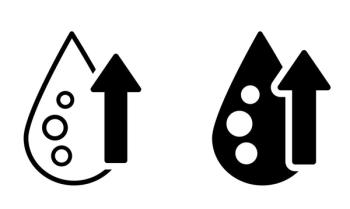
Diets High in Copper and Fats Linked to Cognitive Decline
CHICAGO -- A diet high in saturated and trans fats along with a high intake of dietary copper may be associated with an accelerated decline in thinking, learning, and memory, researchers reported.
CHICAGO, Aug. 15 -- A diet high in saturated and trans fats along with a high intake of dietary copper may be associated with an accelerated decline in thinking, learning, and memory, according to researchers here.
In a study of 3,718 participants, ages 65 and older, enrolled in the Chicago Health and Aging Project (CHAP), high copper intake from food and supplements was linked to a significantly faster rate of cognitive decline. However, the association held only for those who also consumed a diet high in saturated and trans fats, found a study in the August issue of the Archives of Neurology.
Organ meats, such as liver, and shellfish are foods with the highest copper levels, followed by nuts, seeds, legumes, whole grains, potatoes, chocolate, and some fruits. Drinking water delivered through copper pipes may also add trace amounts of the metal. The recommended dietary allowance of copper for adults is 0.9 mg/d, said Martha Clare Morris, Sc.D., of Rush here, and colleagues.
Cognitive scores declined on average by 4.2 standardized units per year in all participants as they grew older, but copper intake by itself was not linked to this decline, the researchers said.
However, when high saturated-fat and trans-fat consumption was added to high copper intake, cognitive decline accelerated. Trans-fats, partially hydrogenated fats, are found in vegetable shortening, some margarines, baked goods, and other processed foods.
For 604 individuals (16.2%) who consumed the most fats and whose total copper intake was in the top 20% (? 1.6 mg/d), the difference in rates for the highest quintile (median, 2.75 mg/d) vs the lowest quintile (median, 0.88 mg/d) of total copper intake was 6.14 standardized units per year (P
It is possible, they said, that dietary copper may interfere with clearance of amyloid-? and may further promote accumulation of the peptide.
A limitation of the study, the researchers wrote, is the potential for inaccurate measurement of dietary copper, because the content in plant food varies with the soil. Also, it is not clear, they said, to what extent copper water pipes contribute to the level of intake from water.
The observational design of CHAP limited interpretations of the cause of the fat-copper relationship. In addition, they said, the analyses in this study were an extension of earlier dietary-fat associations with cognitive decline, leaving a greater likelihood of chance findings.
"This finding of accelerated cognitive decline among persons whose diets were high in copper and saturated and trans fats must be viewed with caution," Dr. Morris wrote.
"The supporting evidence on this topic is limited," Dr. Morris concluded, adding, "The strength of the association and the potential impact on public health warrant further investigation."
Newsletter
Enhance your clinical practice with the Patient Care newsletter, offering the latest evidence-based guidelines, diagnostic insights, and treatment strategies for primary care physicians.

































































































































